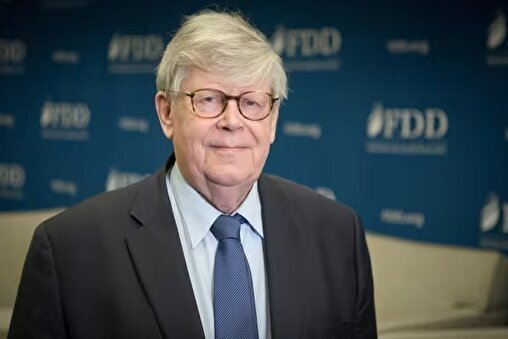
As the Iran-US talks entered the third round and technical and expert discussions began, it was expected that there would be fluctuations in the negotiations, especially since the American side (as an internal factor) has been changing its positions at every moment.
To know more about the recent changes in Whitte House and new stances of the US officials and the effect of the changes on the fate of the Iran-US talks, TABNAK reached out to Olli Heinonen, former Deputy Director-General for Safeguards at the International Atomic Energy Agency (IAEA).
Mike Waltz, the U.S. National Security Advisor, was dismissed by Trump. It is said that one of the reasons for his dismissal was his private meeting with Netanyahu and coordinating with him about a military strike on Iran. On the other hand, Marco Rubio, while retaining his position as Secretary of State, has taken over the role of U.S. National Security Advisor. Accordingly, given his more hardline stance compared to Steve Witkoff, he will play a greater role in matters related to Iran. What is your assessment?
There are numerous claims circulating in the media regarding Mr. Waltz’s handling of sensitive information, his interactions with White House staff, and his meetings with Mr. Netanyahu. However, it’s important to note that liaising with foreign leaders, including the Israeli Prime Minister, falls within the normal responsibilities of a National Security Advisor. Now that Mr. Waltz has been nominated to serve as U.S. Ambassador to the United Nations, we can expect his past conduct to be scrutinized in upcoming congressional hearings. While some may view this nomination as a demotion, the role of U.N. Ambassador is significant in building coalitions to advance U.S. policy. With a new National Security Advisor expected to be appointed, Steve Witkoff’s role may remain largely unchanged.
Some argue that the Iran nuclear dossier may be handed over to the State Department and Marco Rubio personally. Rubio has recently shifted his position on Iran's nuclear program from complete dismantlement (the Libya model) to ‘zero enrichment’ (the UAE model). Do you think negotiations with Iran might be transferred to him?
Mr. Rubio has several important tasks on top of the Iran dossier as the Secretary of State. At this stage there does not seem to be compelling need to assign him as the negotiator for talks with Iran. As for the Libya model, it’s worth clarifying that Libya did not dismantle its entire civilian nuclear program. For example, the Tajoura research reactor remains operational and continues to use fresh fuel supplied by Russia. What was dismantled irretrievably under IAEA verification were Libya’s uranium enrichment and conversion capabilities, as well as its weaponization efforts.
Can the delay in negotiations with Iran be seen as a restructuring and alignment of the Trump administration's views on Iran? It is said that Mike Waltz’s perspective created inconsistencies in the Trump administration's approach to Iran.
Some interpret the delay in negotiations with Iran as part of a broader restructuring and realignment of the Trump administration’s Iran policy, possibly triggered by Mike Waltz’s approach. While some U.S. officials have issued conflicting statements, these do not appear to be the main reason for the current delay. With Marco Rubio now responsible for coordinating national security matters, the negotiations—still in their early stages—are expected to proceed.
Marco Rubio recently stated that Iran has no right to enrich uranium. However, the NPT grants countries the right to peaceful use of nuclear energy. Moreover, this right was given to Iran under the JCPOA, and therefore, based on the principle of estoppel, a right that has once been recognized cannot be revoked from Iran. What is your assessment?
Rights under the NPT come with corresponding obligations. Iran is currently in breach with some of its NPT safeguards agreement obligations. There are also indications that some of Iran’s statements in 2015 regarding long-outstanding issues—critical to the start of implementation of the JCPOA—may have been inaccurate. The best path forward for any new agreement would be for Iran to address these deficiencies finally in a verifiable manner.
In justifying his argument that Iran does not need uranium enrichment, Rubio claimed that only countries with nuclear bombs engage in uranium enrichment. However, countries without nuclear bombs, such as Japan and Brazil, have indigenous enrichment programs. What is your assessment?
Japan and Brazil both enrich uranium domestically, although they also import enriched uranium. These countries manufacture nuclear fuel for peaceful purposes and remain in compliance with their NPT safeguards agreements. Their enrichment activities are aligned with the requirements of their known civilian nuclear programs.
Iran has very limited uranium resources and the planned nuclear program will likely heavily on imports of natural and enriched uranium. Most economic way is to import nuclear fuel, which can be acquired for Russian type of reactors also from other countries as we see already taking place in Europe. By diversifying sources Iran can get nuclear fuel with competitive prices and have assurances for supply.
European countries, including France, are talking about possibly triggering the snapback mechanism. Could these countries sabotage a potential agreement between Iran and the U.S. with such a move? Under what circumstances would they refrain from taking such action?
European countries, including France, have expressed concerns about Iran’s lack of cooperation in addressing unresolved questions about its past nuclear activities—particularly those with possible military dimensions—and its ongoing production of 60% enriched uranium, which has not known civilian applications in Iran. It’s important to understand that 60% enrichment is a key step in the pathway to weapons-grade uranium, as outlined in the A.Q. Khan blueprint (i.e., natural uranium → 3.5% → 20% → 60% → 90%).
While these concerns may lead Europe to consider triggering the JCPOA’s snapback mechanism, such action would likely depend on Iran’s willingness to engage constructively and transparently to address these issues. European countries would be less inclined to proceed with snapback if meaningful progress were made toward a new or renewed agreement.